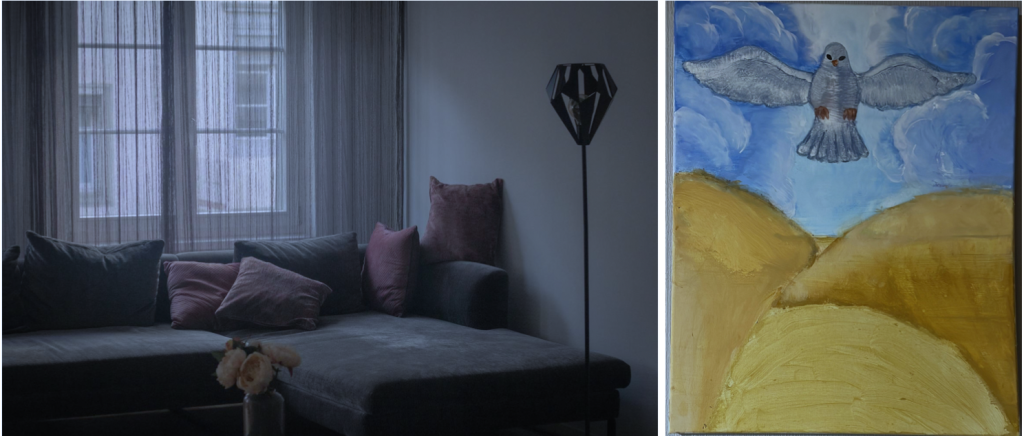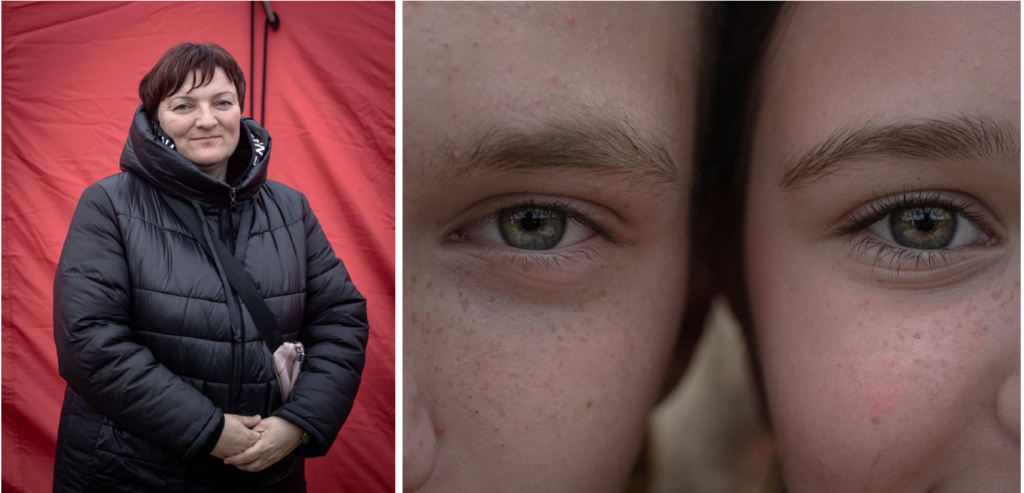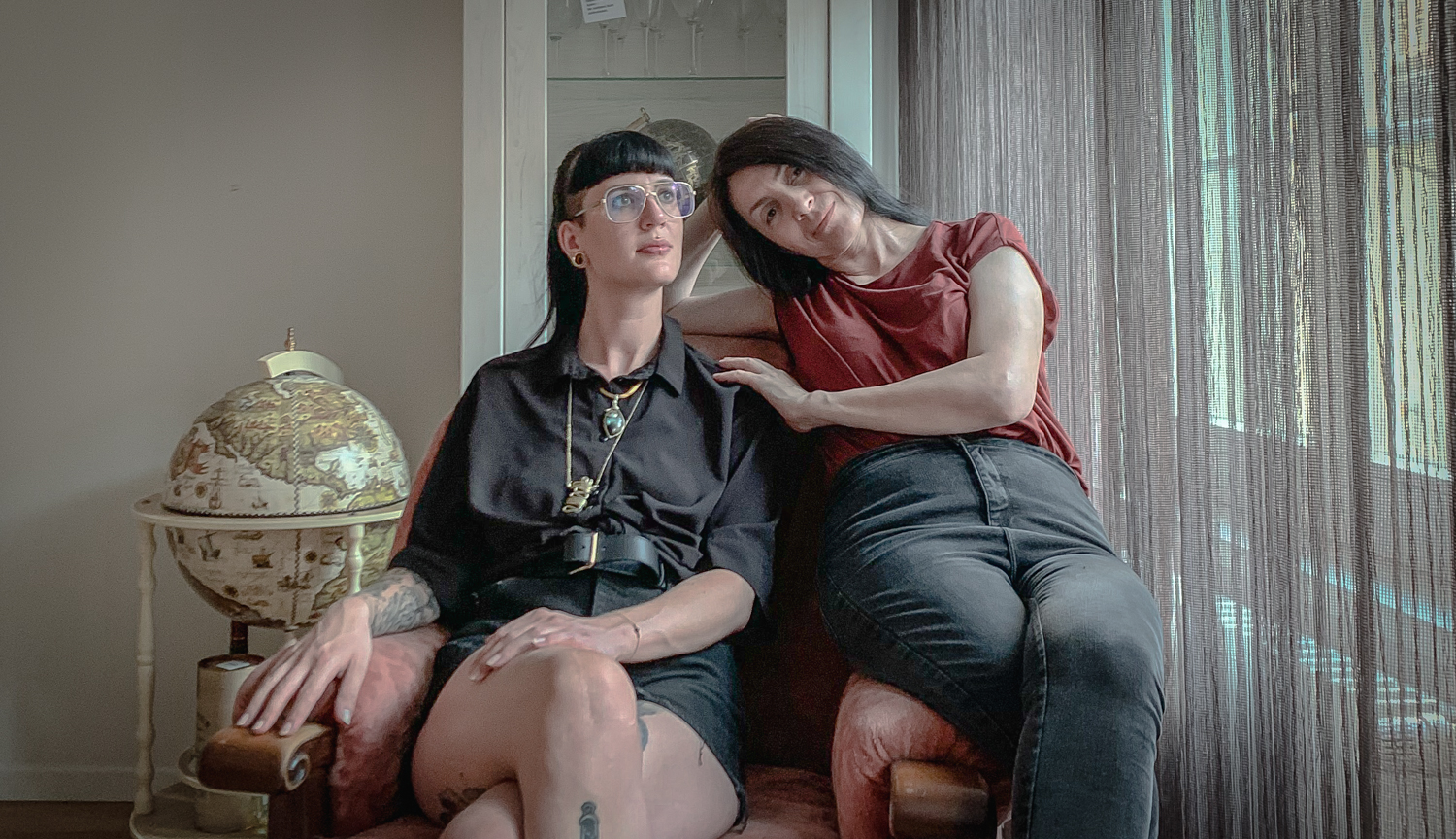Entering Rebecca’s home feels like stepping into the mind of a child learning to talk. Everywhere, little post-it notes with handwritten words in German identify the objects they are attached to. Die Wand, der Tisch, der Kühlschrank – the wall, the table, the fridge.
It has been over a month since Rebecca Knobel welcomed Aya Aslanova, a 47-year-old Ukrainian grandmother, into her spare room. And while her new roommate works on learning the language, the 29-year-old text and new media producer from Switzerland keeps a living and breathing vocabulary around the house.
Since Russian forces invaded Ukraine in February, over 5.5 million people have fled the country and sought refuge across Europe. All over the continent, governments and citizens came through to help, on what the European Council on Foreign Relations has called “a historic scale”.
For the first time, all 27 members of the European Union showed unequivocal and unanimous willingness to provide refuge. Even states which were once keen to keep Syrians out during the 2015 crisis endorsed the Temporary Protection Directive, an exceptional measure to offer quick and effective assistance to people fleeing the war in Ukraine.
The same attitude was reflected locally. A study conducted by the Public Policy and Management Institute (PPMI) showed that cities play a crucial role in dealing with such crises, as they can provide not just shelter, but also social and economic opportunities.
Many of the countries that didn’t have enough housing available for refugees found a solution through the solidarity and volunteering spirit of locals. They organized accommodations through citizen volunteering programmes, often with allowances for those who signed up. Only in Lithuania, private individuals have offered Ukrainian families more than 10 thousand places to stay.
According to Iselin Mulvik, one of the authors of the study, “these schemes are particularly impactful in countries with little experience in hosting refugees and in countries where there is no room available for big refugee camps. It can also be a good solution for cases where these camps fail to meet human rights standards”.

© Amanda Magnani & Andreas Specht; Left: Rebecca’s apartment. Right: Painting using the colours of the Ukrainian flag made by Olga’s daughter Christina and Andreas’ daughter Ruth.
After her ex-husband moved out, Rebecca saw an opportunity to play her part. Upon finding herself living by herself, she contacted social welfare and volunteered her home. “I just called the office and told them: I have an extra room. If there’s anyone who needs a roof over their head, I can offer it. No matter where they come from, no matter why they need it”, Rebeca recalls. A couple of weeks later, she was paired with Aya.
Rebecca is not alone. Across Europe, the refugee response revolved mostly around the spontaneous initiatives of local citizens, many of whom acted as individuals.
In a small town near Frankfurt, Andreas Specht and his family started helping Ukrainian refugees when Olga Bilous, who fled Ukraine with her 15-year-old son and 12-year-old daughter, called him from the Slovakian border.
“I didn’t know Olga at the time, but we had a friend in common. When she called me from the border, I talked to my wife and we decided to take her family in”, says Andreas, a father of eight himself. “Our home isn’t very big, but, as Christians, we felt it was our duty and privilege to be there for them”.
Since then, Olga has found a job and moved with her children into their own apartment – and Andreas has helped another eight or nine families settle in.
Meanwhile, in the countryside of the Czech Republic, the Kovářová family made their different companies and businesses available for Ukrainian refugees. “Over the years, our companies have always had close relations with Ukrainians, because many of our construction workers come from that country. So when the war broke, we started cooperating with local non-profits to support as many people as we could”, says Marie Kovářová.
The family now receives retroactive financial support from the local government to offer housing for over 40 Ukrainian refugees. But it wasn’t always like that. “In the beginning, we just did it from our own initiative”, says Marie. “We had the space and the funds, so we wanted to help. Being there for each other is what makes us humans, so if someone has the means to help, they should”.
Some of the refugees now work in the Kovářová’s companies. Others work for their partners and colleagues, as they help Ukrainians find the work they are qualified for – and the work they want to do.
Yet, this type of citizen response poses its own challenges.

© Amanda Magnani; Left: Olga Bilous, entrepreneur and former owner of an eyeglass stand in a Bazar in Zaporizhzhia. Right: Olga’s son, Bogdan, and daughter, Christina.
According to PPMI’s study, although people have been very generous, governments haven’t been coordinating the volunteering schemes well enough. While there is plenty of misinformation, protocols and guidelines are nowhere to be found.
“These positive experiences need to be shared so that the processes can be more resilient and ready to reappear again when another crisis emerges”, says Iselin Mulvik.
She explains that when these schemes are not well organised, or when the financial support offered to the host families is not aligned with their needs, there can be significant negative effects. “This is happening at a time when energy and housing prices are increasing, so residents already have additional costs of living. It is too much pressure for local communities”, Iselin adds.
Coupled with these issues is the concern about solidarity fatigue and the natural limits of volunteerism. According to the same study, while local citizens have shown unprecedented dedication to helping Ukrainian refugees, one of the main challenges moving forward will be to maintain these efforts as the levels of solidarity and volunteerism inevitably start to drop.
To that, Iselin argues that while it is possible – and necessary – to facilitate learning opportunities among the communities, it is hard to directly translate this motivation into another crisis.
“The risk with volunteer-based initiatives is that, over time, people will be fatigued and lose solidarity”, she says. “When only a small group holds all the responsibility, the pressure can become too great and we may lose those who were once the most motivated. So when it comes to involving residents, the leadership has to be distributed. Bring more people in, learn from your peers That’s how resilience is built”.
Besides these recommendations, PPMI’s study proposes the creation of policies that focus on building the capacities of longer-term residents in solving local challenges.
“Right now, we are talking about the local level – but local policies don’t operate in a vacuum”, says Iselin. While the financial capacity and autonomy for decisions may vary across cities and countries, tensions between local and national levels can always emerge.
Iselin believes that everyone is responsible for creating an inclusive society and that there is much which can be done by individuals. Yet, public policies are pivotal for long-term transformation. The key, according to her, is to understand who has the responsibility in each situation and target them strategically.
The rapid responses in support of the Ukrainian refugees have shown that people are ready – and willing – to act. The challenge, now, is to keep this flame burning.
—
This article was the winning piece of a writing contest held as part of an experiment conducted by ISHR, and aimed at encouraging journalists to use a different narrative framing of human rights stories, based on the principles collected in ‘A Seat at the Table‘, ISHR’s 2021 guide to crafting effective human rights narratives at the UN. This article was written by Amanda Magnani, a freelance journalist and graduate student in the Erasmus Mundus Master in Journalism.






